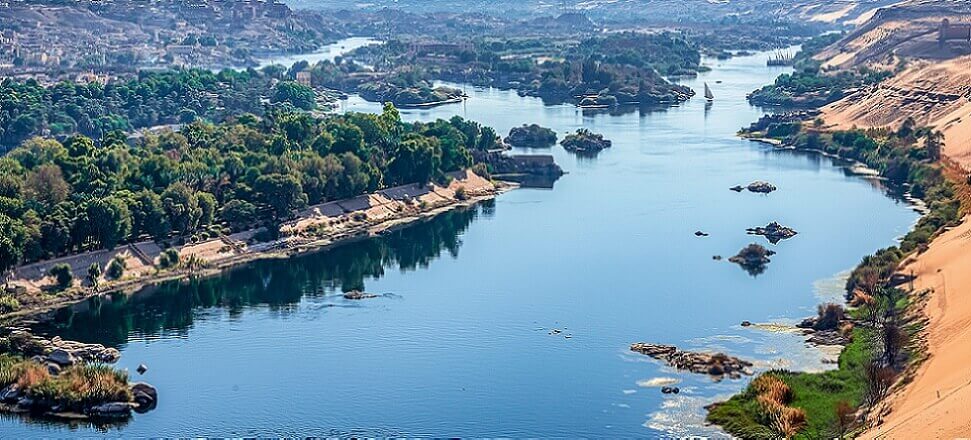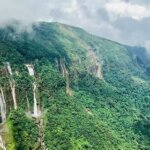When we think of Egypt, the first thing that comes to mind are the pyramids and the Nile waters glistening in the scorching sun. This country is one of the most popular vacation destinations abroad for Poles. Encouraging, in addition to the guarantee of beautiful weather, are the monuments and beautiful landscapes. One of the country’s most iconic attractions is the Nile River, which flows throughout Egypt and flows through a delta into the Mediterranean Sea.
The Nile Delta is an area that provides a major source of drinking water and food for millions of people living in Egypt and neighboring countries. It is also of great importance for tourism. There are many sites in the area that attract visitors. They range from beautiful sandy beaches and thermal waters to monuments of rich history: ancient ruins, pyramids and temples of interest to culture and history lovers.
Unfortunately, the threat has been growing in recent years and the Nile Delta is becoming one of the most polluted areas in the world. However, the consequences will be borne not so much by tourists as by Egyptians and the environment in which they live.
Scale of pollution of the Nile Delta
New research led by Essam Heggy of the USC Viterbi Innovation Fund Arid Climates and Water Research Center, published this month in the journal Earth’s Future, reveals the alarming state of the Nile Delta. Heavy metal pollution, coastal erosion and seawater intrusion are becoming more common and pose a serious threat to the region’s residents. Animals, especially thousands of birds, for whom the Nile estuary is a mandatory stop on their journey to warm countries, may also suffer.
Heggy and his team studied water pollution and changes in the shoreline. They analyzed the levels of contamination with eight heavy metals in bottom sediment samples taken from two branches of the Nile Delta.
Key findings:
- sediments at the bottom of the Nile are heavily contaminated with heavy metals such as cadmium, nickel, chromium, copper, lead and zinc;
- Sources of pollution are primarily industry and agriculture, as well as inadequate waste disposal;
- concentrations of heavy metals may increase as a result of damming the Nile; dams built upstream disrupt the natural flow of water and sediment, and thus adversely affect the river’s ability to flush pollutants into the Mediterranean;
- coastal erosion and seawater intrusion, which increase the risk of flooding and waterlogging, are strongly progressing.
The heavy metals that the river’s waters collect along their length accumulate in living organisms, which also poses a threat to human health. The effects of poisoning with them include damage to the nervous system, heart disease, fertility problems and hormonal disorders. Pollution also threatens infrastructure and affects the soil ecosystem, which can lead to damage to crops and wildlife.
Coastal erosion is another serious problem. This natural process is accelerated by the activities of people who build dams, over-excavate sand, and transform the coast for tourism. It’s also a threat to local communities: destruction of homes and infrastructure, agricultural losses, disease and even death.
Another danger to the Nile Delta is intrusion. This is the process by which salty seawater enters rivers and canals, destroying them and contaminating drinking water. The consequences of this are a lack of drinkable water, the destruction of agriculture and a threat to human health. Seawater intrusion can lead to habitat and biodiversity loss, affecting ecosystems in the Nile Delta.
The study’s authors urge that much of the heavy metal pollution is irreversible. Therefore, it is necessary to take measures to protect the delta, including the implementation of water management, pollution reduction and coastal protection. Without a proper strategy, immediate decisions, millions of people, animals and the environment dependent on the Nile estuary could be in grave danger.
“Our analysis underscores the need for further research into the environmental impact of untreated water.” – Heggy stressed. “Further research and sampling in the area could signal discussions and cooperation with nations that use the Nile basin and that have a common interest in maintaining the river’s good condition.”
Undoubtedly, public education is also important in the fight against pollution. It is necessary to raise awareness among local residents of the risks to their health and lives from the state of the Nile’s waters, as well as to educate them on ways to protect the environment.
How to make the best use of water? – Egyptian authorities’ dilemma
Egypt is a very densely populated and dry country located in the Nile Valley. It is completely dependent on the river, which is the only source of drinking water. Already the authorities are facing severe water shortages, which is affecting the lives of residents and the country’s development. A decisive influence is not only the climate, but also the way surface and land resources are managed.
“Increasing water scarcity and rapid population growth in Egypt (…) have presented local authorities with the dilemma of whether to provide enough water for thirsty agriculture to secure food supplies by reusing untreated drainage water, or to preserve the health of the Nile,” said Abotalib Z. Abotalib, co-author of the study. “Balance is a challenge, and the consequences of both choices are measurable.”

 Polski
Polski






